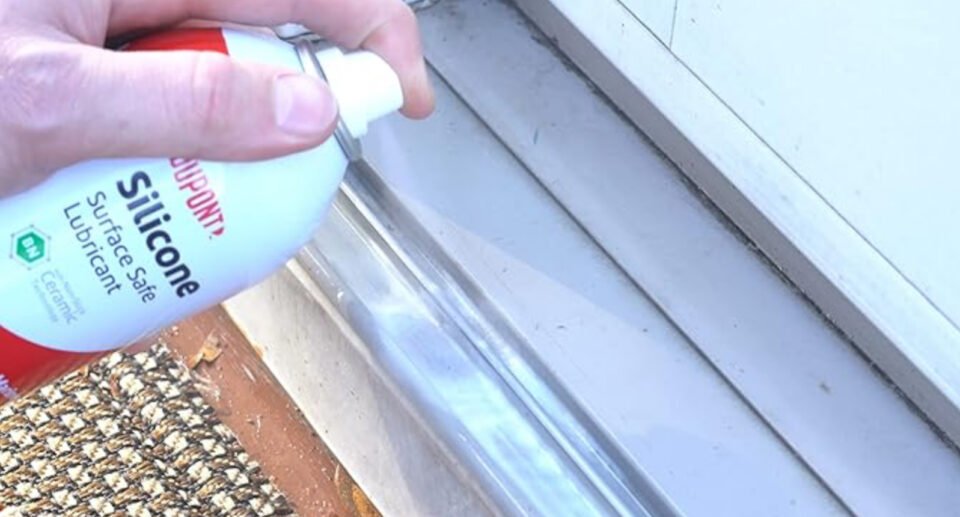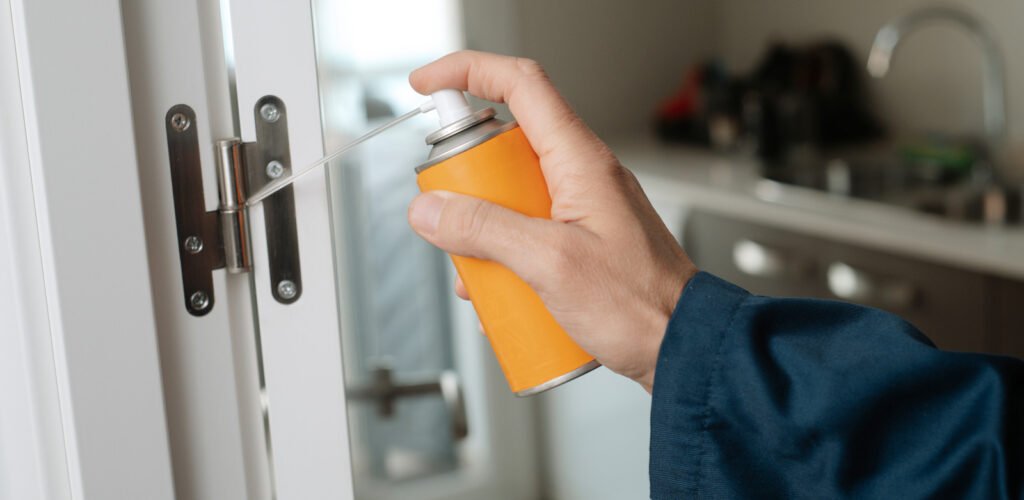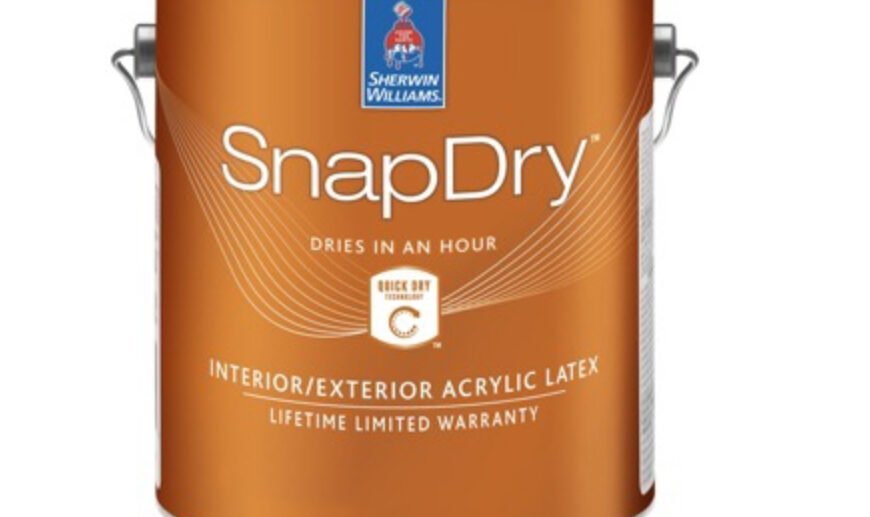An Ultimate Guide On Choosing the Best Lubricant for Sliding Glass Doors

Table of Contents
ToggleSliding glass doors are a popular feature in many homes and offices due to their aesthetic appeal and functionality. However, over time, they can become difficult to open and close due to wear and tear, dirt, and debris. This is where lubricants come in to help maintain the smooth operation of sliding glass doors.
Choosing the best lubricant for sliding glass doors is essential to ensure that they remain functional and last for a long time. There are various types of lubricants available in the market, including silicone spray, dry lubricants, and graphite-based lubricants.
Each type has its advantages and disadvantages, and choosing the right one depends on the specific needs of the sliding glass door.
Maintenance is also a crucial aspect of ensuring the longevity of sliding glass doors. Regular cleaning and lubrication can prevent dirt and debris from building up and causing damage to the door’s components. In addition, checking for loose screws, damaged rollers, and misaligned tracks can help identify potential issues early on and prevent further damage.
Understanding Lubrication for Sliding Glass Doors
Sliding glass doors are a great addition to any home, but they can be a hassle when they start sticking or become difficult to open and close. One of the best ways to ensure that your sliding glass doors work smoothly is by using a lubricant. In this section, we will discuss the different types of lubricants and how to select the right lubricant for your sliding glass doors.
Types of Lubricants
There are several types of lubricants that can be used on sliding glass doors. Some of the most common types of lubricants include:
Silicone-based lubricants: These lubricants are ideal for sliding glass doors because they are non-stick and waterproof. They can also be used on a variety of surfaces, including rubber, plastic, and metal.
WD-40: This is a popular brand of silicone-based lubricant that can be used on sliding glass doors. It is designed to protect metal and non-metal surfaces from rust and corrosion.
Teflon: This type of lubricant is ideal for sliding glass doors because it reduces friction and wear. It also enhances sliding glass door performance and protects surfaces.
Graphite: This type of lubricant is ideal for sliding glass doors because it is dry and won’t attract dirt and dust. It is also long-lasting and won’t evaporate like other lubricants.
Petroleum-based, wax, and oil-based lubricants: These lubricants are not recommended for sliding glass doors because they can attract dirt and dust, which can cause the doors to stick.
Selecting the Right Lubricant
When selecting a lubricant for your sliding glass doors, it is important to consider the type of material your doors are made of. Different lubricants may have different effects on different materials.
It is also important to consider the climate in which you live. For example, if you live in a humid climate, you may want to use a lubricant that is waterproof.
Another factor to consider when selecting a lubricant is the type of door track your sliding glass doors have. Some lubricants may work better on certain types of tracks than others. It is also important to follow the manufacturer’s instructions when applying lubricant to your sliding glass doors.
Preparation and Application

Proper preparation and application of lubricant are crucial for ensuring smooth and effortless movement of sliding glass doors. This section outlines the steps involved in preparing and applying lubricant to your sliding glass doors.
Cleaning the Tracks
Before applying the lubricant, it is essential to clean the tracks thoroughly. Dirt, debris, and grime can accumulate in the tracks over time, causing the doors to stick or become difficult to slide. Here are the steps to follow when cleaning the tracks:
- Clean the tracks using a vacuum cleaner or a brush to remove loose dirt and debris.
- Use a screwdriver or a disposable toothbrush to remove any stubborn dirt or debris that the vacuum cleaner or brush could not remove.
- Wipe the tracks clean using cleaning cloths or paper towels.
Applying the Lubricant Properly
Once you have cleaned the tracks, you can now apply the lubricant. Here are the steps to follow when applying the lubricant:
- Choose the right lubricant for your sliding glass doors. Silicone-based or Teflon-based lubricants are the most common choices for sliding glass doors.
- Apply the lubricant to the top and bottom tracks of the sliding glass doors. Make sure to apply a thin, even layer of lubricant to the entire length of the tracks.
- Slide the doors back and forth a few times to ensure that the lubricant is evenly distributed and to lubricate the rollers.
- Wipe away any excess lubricant using a clean cloth or paper towel.
Common Issues and Solutions
Dealing With Sticking Doors
Sliding glass doors are prone to sticking, especially when they are not lubricated properly. This can be caused by a buildup of dirt and debris in the tracks, as well as rust and corrosion. When the doors stick, they can be difficult to open and close, which can be frustrating and even dangerous.
To deal with sticking doors, it is important to clean the tracks regularly and lubricate them with a high-quality lubricant.
One common issue that causes sticking is excess lubricant. When too much lubricant is applied, it can attract dirt and debris, which can cause the doors to stick. To avoid this, make sure to use the right amount of lubricant and to wipe away any excess with a clean cloth.
Preventing Rust and Corrosion
Rust and corrosion are common issues that can cause sliding glass doors to stick. Moisture is the main culprit when it comes to rust and corrosion, so it is important to keep the tracks dry.
To prevent rust and corrosion, make sure to use a lubricant that is designed to resist water and moisture. Silicone-based lubricants are a good choice because they are waterproof and can protect metal surfaces from rust and corrosion.
Regular cleaning and maintenance can also help prevent rust and corrosion. It is important to clean the tracks regularly and to remove any dirt and debris that may be present. This will help prevent moisture from accumulating and causing rust and corrosion.
Maintenance and Long-Term Care
When it comes to maintaining the performance and durability of sliding glass doors, regular maintenance and care are crucial. One of the most important aspects of maintaining sliding glass doors is to keep the tracks clean and free of debris.
Dirt, dust, and other debris can accumulate in the tracks and cause the door to stick or become difficult to slide. To prevent this, it is recommended to vacuum the tracks regularly and wipe them down with a damp cloth.
In addition to keeping the tracks clean, it is also important to lubricate the rollers and tracks periodically. This helps to reduce friction and wear, and ensures that the door slides smoothly and quietly.
When selecting a lubricant, make sure to choose one that is water-resistant and reliable. Silicone-based or Teflon-based lubricants are ideal for sliding glass doors as they are long-lasting and provide excellent protection against water and other elements.
If the door is showing signs of wear or damage, it may be necessary to replace the rollers or tracks. This is especially true if the door is becoming difficult to open or close, or if it is making unusual noises. In some cases, it may be more cost-effective to replace the entire door rather than just the rollers or tracks.
Conclusion
In conclusion, choosing the best lubricant for sliding glass doors depends on various factors. It is important to consider the materials used in the sliding glass doors and choose a lubricant that is compatible with them.
Silicone-based lubricants such as Liquid Wrench Silicone Spray and Teflon-based lubricants such as B’laster 16 TDL Advanced Dry Lube with Teflon are effective in reducing friction and wear. They also enhance sliding glass door performance and protect surfaces. Additionally, they are easy to apply and provide long-lasting lubrication.
When applying lubricant to sliding glass doors, make sure to evenly distribute it. This helps minimize friction and facilitates effortless movement of the doors. It is also recommended to clean the door tracks before applying lubricant to ensure optimal performance.

Hello, I’m Keith Jones. I’m the author and head of content here of door and window guide. I’ve been in the window and door industry for over 10 years in the UK and North America. I’ve had quite a few roles during my career mainly in Worldwide sales. I’m now semi retired so I thought I’d put my knowledge to good use educating people about all they might need to know about door and window related topics.






